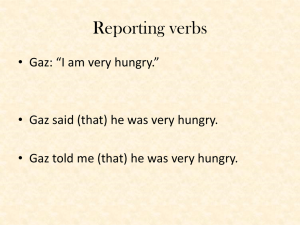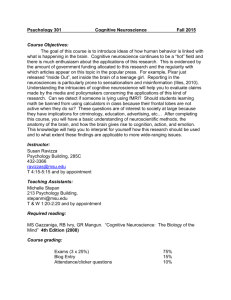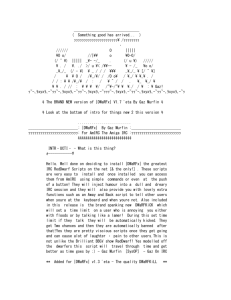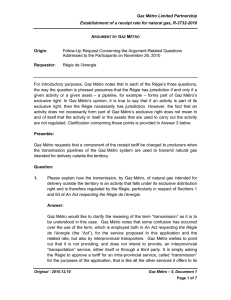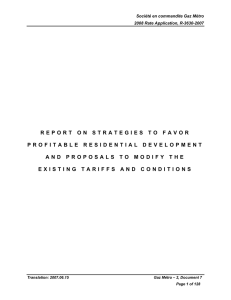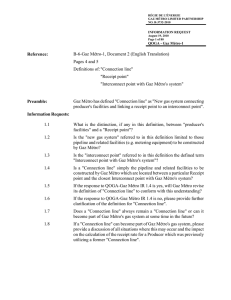Introduction to Cognitive Neuroscience
advertisement
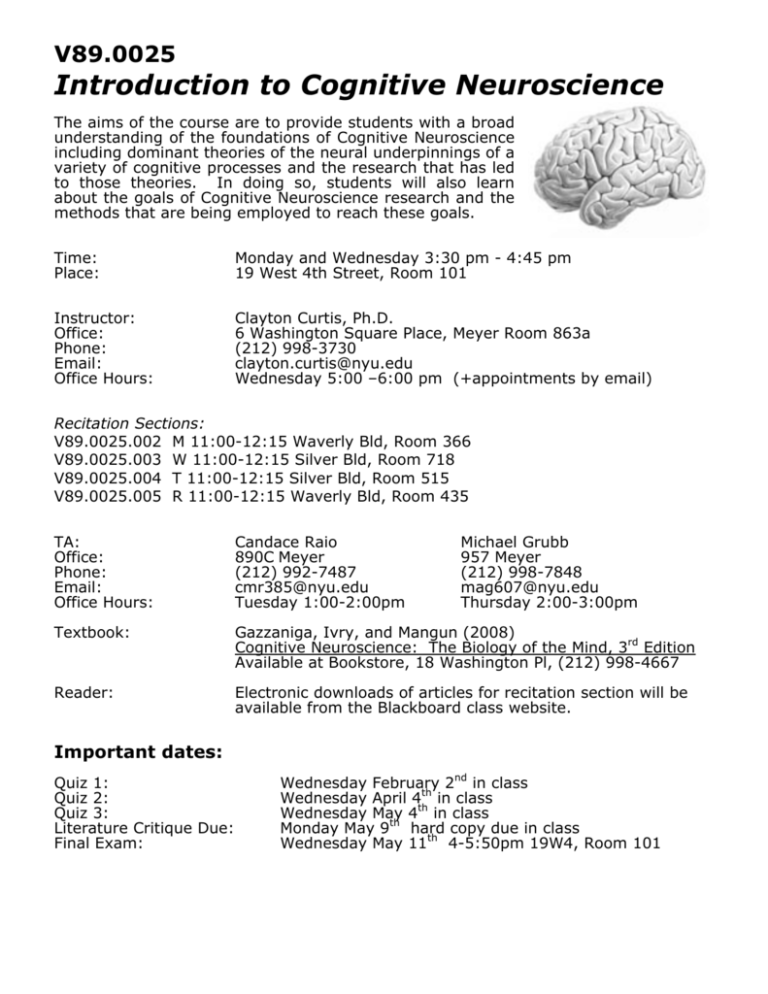
V89.0025 Introduction to Cognitive Neuroscience The aims of the course are to provide students with a broad understanding of the foundations of Cognitive Neuroscience including dominant theories of the neural underpinnings of a variety of cognitive processes and the research that has led to those theories. In doing so, students will also learn about the goals of Cognitive Neuroscience research and the methods that are being employed to reach these goals. Time: Place: Monday and Wednesday 3:30 pm - 4:45 pm 19 West 4th Street, Room 101 Instructor: Office: Phone: Email: Office Hours: Clayton Curtis, Ph.D. 6 Washington Square Place, Meyer Room 863a (212) 998-3730 clayton.curtis@nyu.edu Wednesday 5:00 –6:00 pm (+appointments by email) Recitation Sections: V89.0025.002 M 11:00-12:15 Waverly Bld, Room 366 V89.0025.003 W 11:00-12:15 Silver Bld, Room 718 V89.0025.004 T 11:00-12:15 Silver Bld, Room 515 V89.0025.005 R 11:00-12:15 Waverly Bld, Room 435 TA: Office: Phone: Email: Office Hours: Candace Raio 890C Meyer (212) 992-7487 cmr385@nyu.edu Tuesday 1:00-2:00pm Michael Grubb 957 Meyer (212) 998-7848 mag607@nyu.edu Thursday 2:00-3:00pm Textbook: Gazzaniga, Ivry, and Mangun (2008) Cognitive Neuroscience: The Biology of the Mind, 3rd Edition Available at Bookstore, 18 Washington Pl, (212) 998-4667 Reader: Electronic downloads of articles for recitation section will be available from the Blackboard class website. Important dates: Quiz 1: Quiz 2: Quiz 3: Literature Critique Due: Final Exam: Wednesday February 2nd in class Wednesday April 4th in class Wednesday May 4th in class Monday May 9th hard copy due in class Wednesday May 11th 4-5:50pm 19W4, Room 101 Course grading: The exams and paper will be weighted as follows: Best 2 of 3 Quizzes: Recitation Participation: Literature Critique: Final Exam: 25% each (50% total) 05% 15% 30% Grades will be adjusted to be a percentage of the average of the top 3 scorers in the class (e.g., B-minus = 80.00-82.99% of AvgTop3). Under no circumstances will grades be curved down. Exams: There will be three in-class quizzes. Each quiz will be composed of three parts: 1) multiple choice; 2) short identifications; 3) one essay. There will sometimes be a choice for both the identifications and essays (e.g., answer 1 of the 2 essays). Your worst quiz score of the 3 will be dropped. There will be a final exam that will be cumulative and similar in structure to the quizzes. Make-up quizzes and exams are not given except under emergency situations. In such circumstances, the student is responsible for notifying the instructor prior to the quiz or exam. I will not offer make-ups under any circumstances; in almost all cases the missed quiz will count as your worst quiz and will be dropped. Use your drop however you like, eg, if you are sick or if you want to go snowboarding. There will be no make-up final exam; an incomplete will be given. Literature Critique: The goal of the critique is to get students to read original research articles with a focus on the methods used to investigate the question under consideration. Students must review two articles that address a common topic, but use two different methods (e.g., patient study and functional imaging study; single cell recording and patient study). The paper will be a maximum of 3-pages (double-spaced); I will stop reading at the end of page 3. Late papers will be penalized. A detailed description of the assignment will be provided later in the semester. It is highly recommended that students discuss their planned topic with the instructor or teaching assistant weeks prior to the due date. Recitations: The recitation sections provide an opportunity to discuss the readings as well as review material presented in class. The main point is to introduce students to reading and criticizing empirical research papers. Students will be expected to read the article that will be discussed in their section before they go to section. This will facilitate a discussion of the research in the context of the lectures and book materials. Research Requirement: This is a Core A class and has a research requirement that you participate in 2 hours of experiments for this course. No extra credit will be given for extra hours. Alternatively, you can write a paper. See the class webpage on Blackboard under “Course Information” for links to important documentation. You will receive an incomplete if you do not fulfill this requirement. Lectures, Recitations, and Readings Wk Date 1 01.24.11 1 01.26.11 No Recit 2 01.31.11 2 02.02.11 Recit 1 3 02.07.11 3 02.09.11 Recit 2 4 02.14.11 4 02.16.11 Recit 3 5 02.21.11 5 02.23.11 Recit 4 6 02.28.11 No Recit 6 03.02.11 7 03.07.11 7 03.09.11 Recit 5 8 8 03.21.11 03.23.11 Recit 6 9 03.28.11 9 03.30.11 Recit 7 10 04.04.11 110 04.06.11 No Recit 12 04.11.11 13 04.13.11 Recit 9 11 04.18.11 11 04.20.11 Recit 8 13 04.25.11 14 04.27.11 Recit 10 14 05.02.11 15 05.04.11 15 05.09.11 16 05.11.11 Lect Topic 1 What is Cognitive Neuroscience? 2 History and Principles of Neuroscience 3 Gross Functional Neuroanatomy 4 Methods 1: Lesion Anatomy 5 Methods 2: Physiology 6 Perception Methods 7 Perception 8 Perception Perception President’s Day - No Class 9 Recognition Recognition 10 Recognition 11 12 13 14 15 16 17 QUIZ 1 Learning & Memory Learning & Memory Memory SPRING BREAK 03.14 & 03.16 Attention Attention Attention Working Memory Working Memory Working Memory QUIZ 2 Motor control 18 Motor control 19 Hemispheric Asymmetry Motor control 20 Reward & Decision Making 21 Reward & Decision Making Decision Making 22 Emotion 23 Language Emotion 24 Cognitive Control QUIZ 3 25 Review for Final Exam & Papers due FINAL EXAM- 4:00-5:50pm Reading GAZ 1 GAZ 2 GAZ 3 GAZ 4 GAZ 4 GAZ 5 GAZ 5 GAZ 6 GAZ 6 GAZ 8 GAZ 8 GAZ 12 GAZ 12 GAZ 13: 555-571 GAZ 13: 555-571 GAZ 7 GAZ 7 GAZ 11 GAZ 14: 623-633 GAZ 14: 623-633 GAZ 9 GAZ 10 GAZ 13: 571-598
